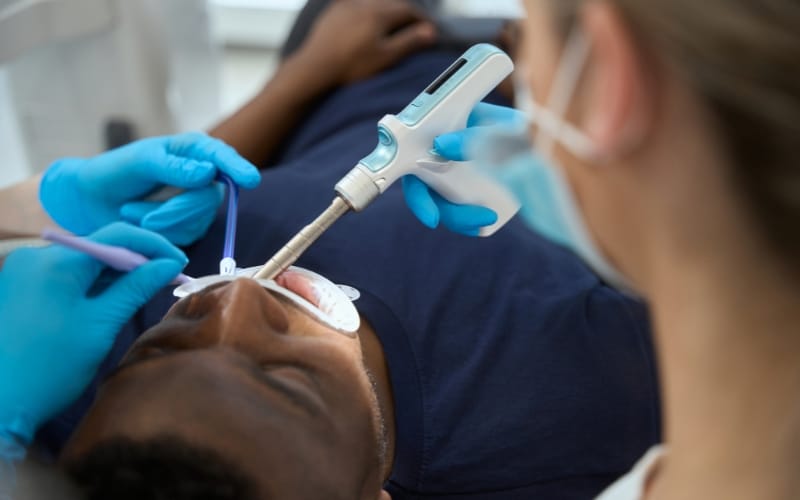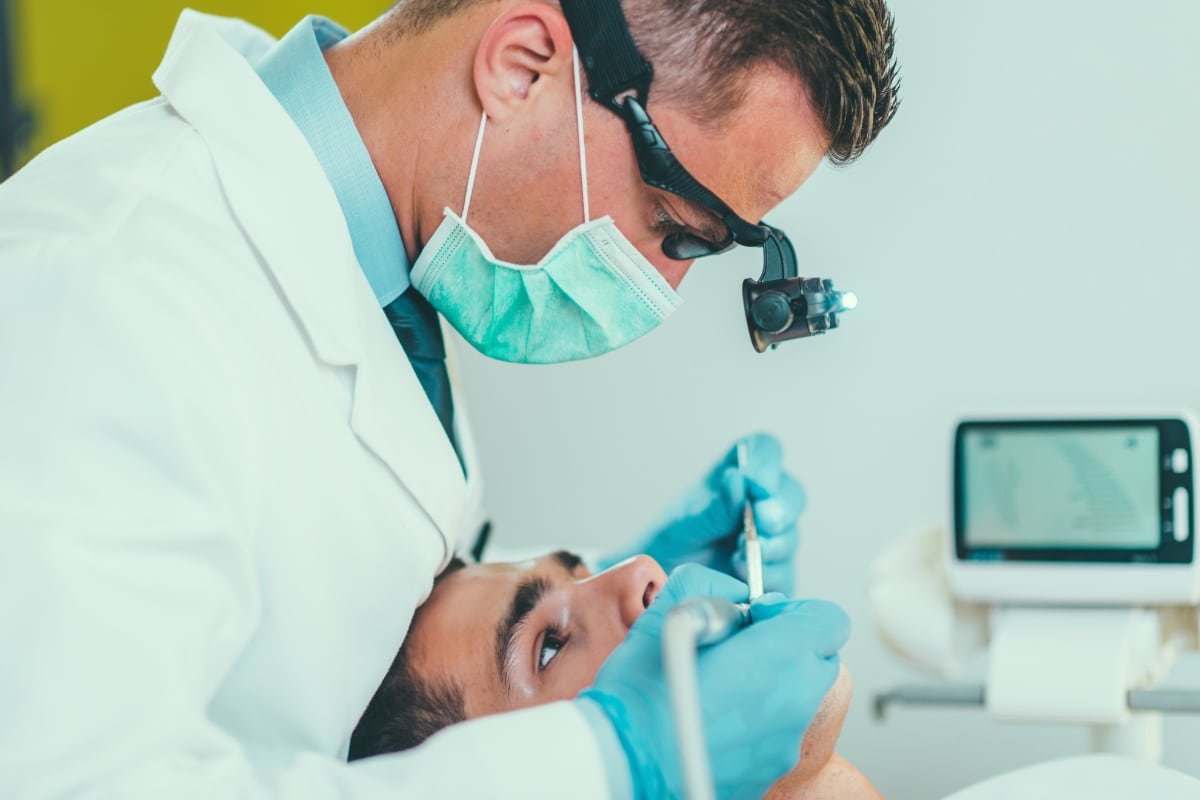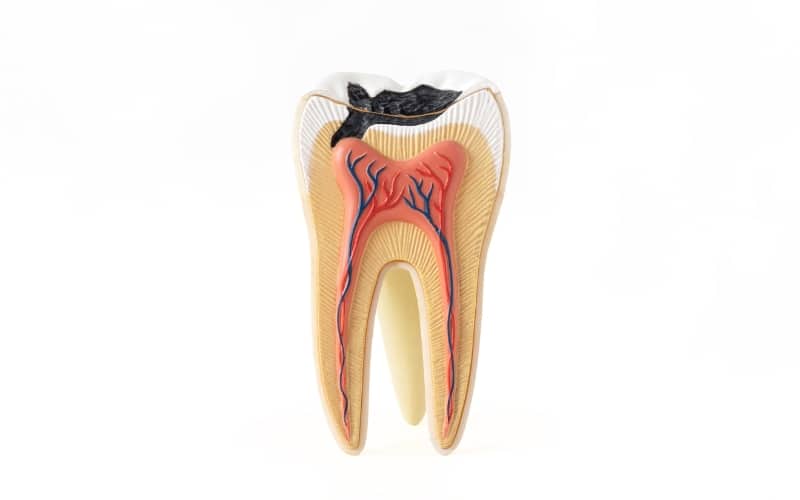New Patients Welcome!

A root canal is a dental procedure that removes infected tissue from inside a tooth. The main purpose of this treatment is to save a tooth that has become painful or infected. Proper post-treatment care is essential after a root canal to ensure the tooth heals well.
Good care helps prevent future issues and maintains your tooth’s function and appearance. The goal is to promote long-term health for the treated tooth, allowing you to enjoy a healthy smile for years to come.
Understanding the Root Canal Procedure
The root canal procedure involves removing the pulp, or the innermost part of the tooth, which contains nerves and blood vessels. The dentist starts by numbing the area and then makes an opening in the tooth. Using specialized tools, they clean out the infected or damaged pulp.
Once cleaned, the dentist fills the empty space with a biocompatible material to seal it. This helps prevent bacteria from re-entering. Finally, the tooth is usually topped with a crown to restore its shape and strength.
Many people fear root canals due to myths. Some believe the procedure is excruciating. However, modern techniques and anesthesia make it relatively comfortable. Others think that a root canal means the tooth is “dead.” While the pulp is removed, the tooth can still function normally. The surrounding tissues continue to support it, and proper care allows for a healthy recovery.
Immediate Post-Treatment Care
After a root canal, you need to follow specific guidelines for your recovery. Here are some dos and don’ts to keep in mind.
Dos:
- Take prescribed medications as directed.
- Use ice packs to reduce swelling.
- Stick to soft foods for the first few days.
- Keep your head elevated while resting.
Don’ts:
- Avoid hard, crunchy foods that can stress the tooth.
- Do not consume hot or cold beverages until numbness wears off.
- Refrain from using straws, as suction can dislodge the blood clot.
Pain management is crucial during recovery. Over-the-counter pain relievers can help alleviate discomfort. For some, the dentist may prescribe stronger pain medication. Ice packs can also be beneficial for the first 24 hours. Apply ice for 15-20 minutes every hour to minimize swelling.
Your diet plays an important role after a root canal. Stick to soft foods like yogurt, applesauce, and mashed potatoes. Avoid spicy or acidic foods, which can irritate the treated area. Remember, gentle care during the initial healing phase can significantly impact your recovery.
Long-Term Care for Your Tooth
Oral Hygiene Practices
Maintaining proper oral hygiene after a root canal is crucial. Brush your teeth at least twice daily with a soft-bristled toothbrush. This helps protect your healing tooth and prevent plaque buildup. Floss daily to remove food particles and plaque between teeth. If your tooth feels sensitive, consider using toothpaste designed for sensitive teeth.
Regular Dental Check-Ups
Regular dental check-ups are vital for your oral health. Schedule follow-up appointments as your dentist recommends. During these visits, your dentist will check the treated tooth for signs of healing. They will also examine surrounding teeth and gums for any potential issues. Consistent visits help catch problems early.
Watch for Signs of Complications
Pay attention to any changes in your tooth. Symptoms like pain, swelling, or discoloration may indicate a problem. If you experience persistent pain or notice unusual changes, contact your dentist promptly. Early intervention can save your tooth and prevent more serious complications.
Dietary Considerations
Your diet significantly impacts your oral health, especially after a root canal. Eating a balanced diet helps support healing and maintains strong teeth. Include plenty of fruits, vegetables, whole grains, and lean proteins in your meals. These foods provide essential nutrients for recovery.
Certain foods can promote healing and strength in your teeth. Dairy products, like yogurt and cheese, are rich in calcium, which is vital for tooth health. Leafy greens and nuts also provide important vitamins and minerals.
On the other hand, avoid sugary snacks and drinks that can lead to decay. These can weaken your teeth and contribute to further dental issues.
Drinking plenty of water is equally important. Staying hydrated helps wash away food particles and keeps your mouth clean. Herbal teas can also be soothing and offer additional health benefits. Always prioritize a nutritious diet to ensure lasting oral health.
Lifestyle Changes for Better Dental Health
Making lifestyle changes can significantly improve your dental health. One of the most important changes is to stop smoking and limit alcohol consumption. Smoking can slow down healing and increase the risk of complications. Alcohol can also irritate your gums and lead to further dental problems.
Managing stress is another key factor for good dental health. High stress can lead to teeth grinding, which can damage your teeth and jaw. Consider practicing relaxation techniques such as meditation, yoga, or deep breathing exercises. Regular physical activity can also help manage stress levels.
By making these lifestyle changes, you can support your overall health and ensure your teeth remain strong and healthy.
Taking proper care of your tooth after a root canal is crucial for long-term health. Follow our dentist’s advice and maintain good oral hygiene practices. Regular check-ups and a balanced diet also play a significant role in your recovery. By prioritizing these habits, you can enjoy a healthy smile for years to come. Remember, your oral health is an important part of your overall well-being.





